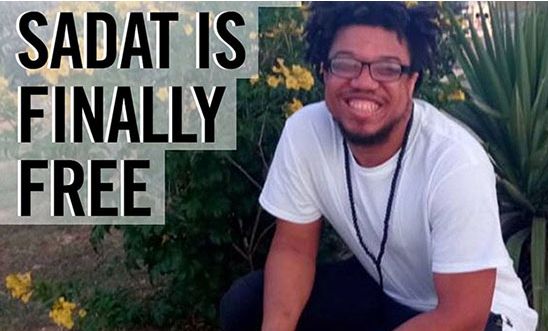
USA: Sadat has a chance to live in safety

Sadat was recently released from a detention centre in Texas. His case for asylum has been reopened and he now has a chance to live in safety.
What happened?
Sadat fled Ghana in November 2015 after being beaten by members of the vigilante group ‘Safety Empire’. The group also burned down his house and beat his uncle three days later.
Sadat was identified as gay by the group after they beat and interrogated his partner and posted a video of the beating on Facebook. Publicly exposing Sadat as a gay man in a country where homosexuality is illegal, the video has been viewed over 53,000 times.
Sadat was detained when he arrived at the US-Mexico border and claimed asylum in January 2016.
Despite evidence that Sadat would continue to face persecution, including threats to his life, if returned to Ghana, the US authorities denied his parole and sought his deportation in March this year.
Homosexuality a crime in Ghana
Homosexuality remains a criminal offence in Ghana and the police consistently fail to prosecute and punish attacks on the LGBTQI community. The leader of ‘Safety Empire’ remains free in Ghana and is continuing to threaten the gay community there.
The US government has an obligation to ensure that the human rights of asylum seekers are respected and protected. This includes ensuring that no asylum seeker is returned to a real risk of torture or other ill-treatment, including imprisonment based on sexual orientation.
The detention of asylum seekers should only be used as a last resort. Parole should be granted for humanitarian reasons, where the person does not pose a threat to public safety and presents no flight risk.
How did Amnesty respond?
After hearing of the threat to deport Sadat to Ghana, Amnesty International USA reached out to other offices asking them to mobilise in support of Sadat.
Amnesty’s NSW LGBTQI action group held a stall at a festival in Newtown calling on the public to sign petitions in support of Sadat. Nearly 8,980 emails were sent by Amnesty International Australia supporters asking the US authorities not to deport Sadat and to release him on parole pending a review of his case for asylum.
In July Sadat won a motion to reopen his case for asylum in the US. He also requested to be released on parole, which was rejected.
Amnesty International quickly sent thousands of actions taken by supporters to ICE staff.
Just a few days later, the request to release Sadat on parole was granted.
What next?
Amnesty International welcomes the release of Sadat but he should have never been detained for so long, simply for seeking asylum.
The prolonged detention of asylum seekers is unacceptable and there should always be a presumption of parole for people seeking asylum.
We will continue to monitor Sadat’s situation as his asylum case is revisited by authorities. Amnesty International Australia and Amnesty International USA will continue to campaign to protect the rights of asylum seekers.